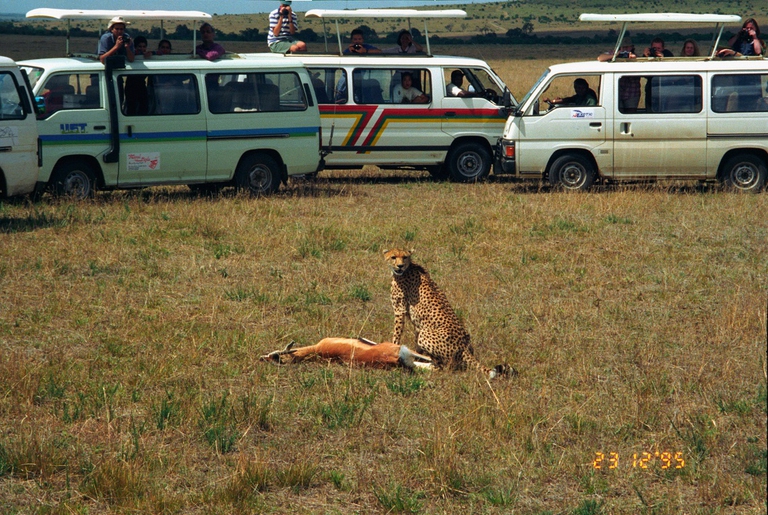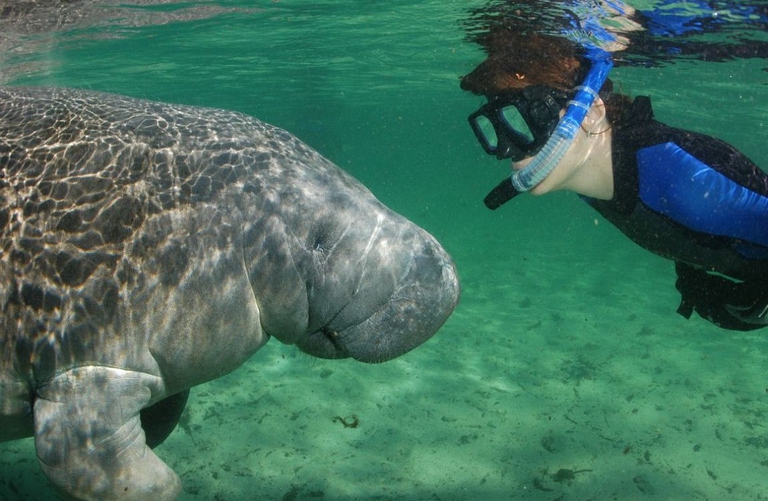
South African court dismisses a major lawsuit by 140,000 Zambian women and children against Anglo American for Kabwe lead poisoning. A setback for affected communities enduring the lasting impact of lead contamination.
Ecotourism, which means travelling in a responsible and respectful way towards the environment and ecology and favouring natural protected areas and parks, is growing steadily. Admiring wildlife in its natural environment is a unique emotion, and this kind of tourism is promoted to finance the conservation of natural areas and sustain local economies.
Ecotourism, which means travelling in a responsible and respectful way towards the environment and ecology and favouring natural protected areas and parks, is growing steadily.
Admiring wildlife in its natural environment is a unique emotion, and this kind of tourism is promoted to finance the conservation of natural areas and sustain local economies. Yet, this growing love for nature could be a threat to nature itself, particularly to wildlife.
Such risk has been highlighted by a study carried out by Professor Daniel Blumstein, of the University of California, published by Trends in Ecology and Evolution magazine. Ecotourism annually generates more than 8 billion visits to protected areas all over the world. According to the study, the fact that animals are getting used to human presence could modify their behaviour, making them more vulnerable to poachers and predators.
“If individuals selectively habituate to humans and if invasive tourism practices enhance this habituation, we might be selecting for or creating traits or syndromes that have unintended consequences, such as increased predation risk,” said Blumstein. “Even a small human-induced perturbation could affect the behaviour or population biology of a species and influence the species’ function in its community.”
Human familiarity could be harmful for both herbivores and predators. Herbivores lower their guard and become bolder with natural predators and poachers, whilst carnivores, which are more elusive, could be discouraged by the huge visitor flows and, by result, could give up hunting in certain areas.
Researchers are trying to understand, in details, how different animal species react to man’s presence, in order to establish the exact exposition levels that could threaten animals’ survival.
Whilst waiting for new details and results, it is possible to adopt good practices. For example, if we meet wild animals, we should keep ouselves distant, be quiet and, most of all, not feed them. We must remember that into forests, woods, and oceans we are guests and, despite our love, it’s better animals to distrust us.
Siamo anche su WhatsApp. Segui il canale ufficiale LifeGate per restare aggiornata, aggiornato sulle ultime notizie e sulle nostre attività.
![]()
Quest'opera è distribuita con Licenza Creative Commons Attribuzione - Non commerciale - Non opere derivate 4.0 Internazionale.
South African court dismisses a major lawsuit by 140,000 Zambian women and children against Anglo American for Kabwe lead poisoning. A setback for affected communities enduring the lasting impact of lead contamination.
Controversial African land deals by Blue Carbon face skepticism regarding their environmental impact and doubts about the company’s track record, raising concerns about potential divergence from authentic environmental initiatives.
Majuli, the world’s largest river island in Assam State of India is quickly disappearing into the Brahmaputra river due to soil erosion.
Food imported into the EU aren’t subject to the same production standards as European food. The introduction of mirror clauses would ensure reciprocity while also encouraging the agroecological transition.
Sikkim is a hilly State in north-east India. Surrounded by villages that attracts outsiders thanks to its soothing calmness and natural beauty.
Sikkim, one of the smallest states in India has made it mandatory for new mothers to plant saplings and protect them like their children to save environment
Chilekwa Mumba is a Zambian is an environmental activist and community organizer. He is known for having organized a successful lawsuit against UK-based mining companies.
What led to the Fukushima water release, and what are the impacts of one of the most controversial decisions of the post-nuclear disaster clean-up effort?
Nzambi Matee is a Kenyan engineer who produces sustainable low-cost construction materials made of recycled plastic waste with the aim of addressing plastic pollution and affordable housing.










